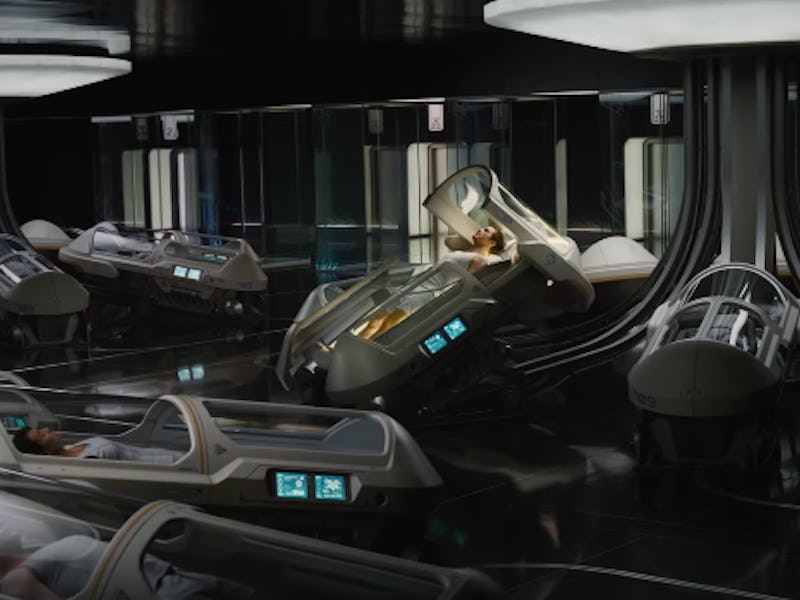In the new trailer for Passengers, Jennifer Lawrence and Chris Pratt are on a deep space journey that’s cut short when their hibernation pods malfunction and they’re woken up, 90 years too soon. It’s a common trope — and tragedy — in science fiction, but it’s also not that unrealistic.
Hibernation pods were dreamed up because deep space destinations are so profoundly far away; science fiction needed a way to explain away the problems that come with decades-long space voyages, like aging, resource consumption, and the mental strain of living in a confined space for long periods of time. Using hibernation pods, which show up in movies from Alien to Avatar, provides a neat solution to those problems.
In reality, NASA-funded SpaceWorks is working on solutions for manned missions to Mars that cut down on resources, space, and psychological struggles for astronauts. Though SpaceWorks’s solution isn’t quite as extreme as hibernation pods in terms of physiological stress, it does involve sending astronauts into deep sleep mode — more specifically, a state called torpor.
Hibernation and torpor aren’t the same thing, but, like hibernation, torpor is an inactive, low-metabolic state induced by a decrease in body temperature. We’re still a long, long way away from actual hibernation pods like the ones we see in science fiction, but torpor is a proven concept — and one that shows some serious promise. By figuring out how to induce torpor, NASA could reduce the materials needed for the 180-day trip to Mars, thereby reducing the weight and most likely simplifying spacecraft, making missions to Mars more sustainable.
Torpor won’t keep someone asleep or in quasi-stasis for 100 years (or even 10 years) and would require considerable resources, but it is the beginning of an explanation for space travel hibernation in a real-world context.
Because it’s less extreme, torpor is also safer than using any of the hibernation pods that have been posited in science fiction so far. Passengers makes it abundantly clear that a lot can go wrong with the pods: If temperatures fluctuate, if the nutrition’s out of whack, if the electrical impulses (or whatever else is keeping the travelers’ muscles from atrophying) malfunctions, you’re going to run into major problems.
While Passengers may be putting the “fiction” in science fiction, with its hibernation pods and massive space cruise liner, it deserves some credit for looking critically at the demands and challenges that will inevitably come with deep space travel and suggesting a fix for those problems that’s based in science and fact.
